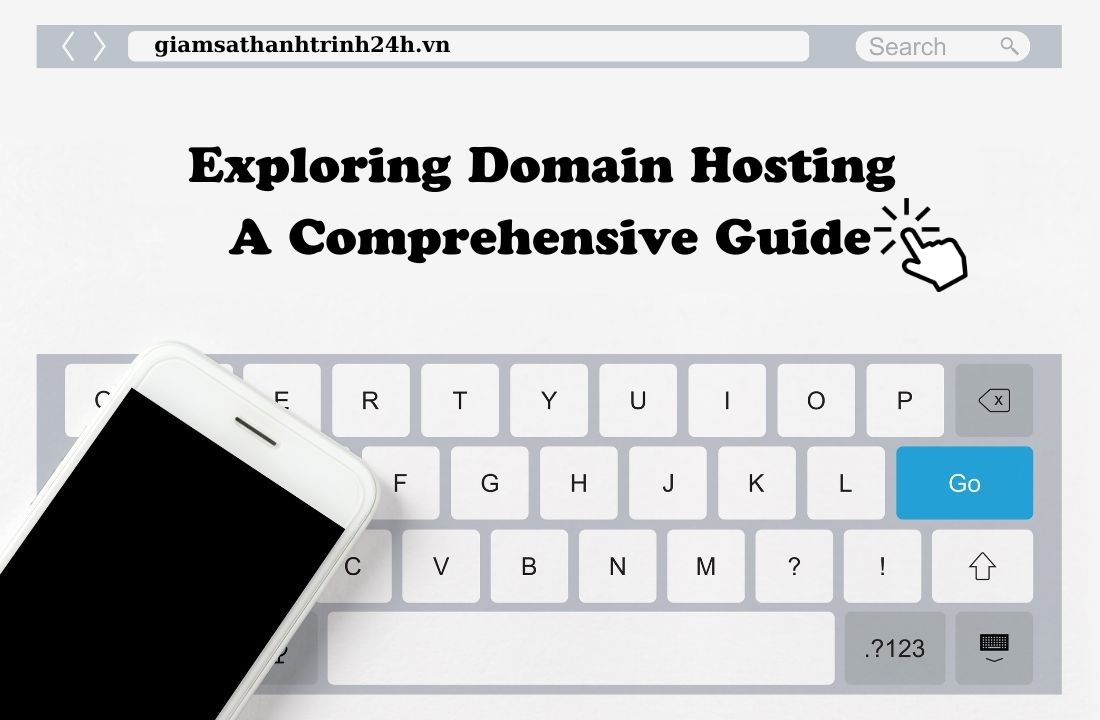In today’s digital age, having a strong online presence is crucial for businesses and individuals alike. And at the core of this online identity lies your website, which serves as a platform to connect with your target audience, showcase your products or services, and establish credibility. But before you can launch your website, you need to choose the right hosting service for your domain. This comprehensive, giamsathanhtrinh24h.vn will walk you through everything you need to know about hosting your domain, from understanding its meaning to comparing different types of hosting services and their prices.
Hosting Domain
To put it simply, hosting domain refers to the process of storing and managing your website’s data on remote servers connected to the internet. When someone visits your website, their request is routed to these servers, where the relevant data is retrieved and displayed. This means that without a hosting service, your website would not be accessible to anyone. Therefore, choosing the right hosting provider is crucial for ensuring that your website remains fast, secure, and accessible for visitors.

What is Domain Hosting?
Domain hosting is often confused with domain registration, but they are two separate processes. While domain registration involves purchasing a unique web address (such as www.example.com), domain hosting refers to the service of storing and managing the data associated with that web address. In simpler terms, domain hosting is like renting space on the internet to store your website’s files, images, and databases.
The Price of Hosting Domain
The cost of hosting your domain can vary greatly depending on the type of hosting service you choose, the features included, and the hosting provider. Generally, shared hosting is the most affordable option, followed by VPS hosting, and then dedicated hosting. However, keep in mind that the cheapest option may not always be the best for your website’s needs. It’s important to consider factors such as website traffic, storage space, and technical support when comparing prices.
Hosting Domain Name
Your domain name is your website’s unique address on the internet. It serves as your online identity and is crucial for branding and marketing purposes. When choosing a domain name, it’s important to keep it short, easy to remember, and relevant to your brand or business. Here are some tips for selecting the perfect domain name:

Keep it Short and Simple
Long and complicated domain names can be difficult for users to remember and type in correctly. Aim for a name that is no more than 15 characters and avoid using numbers or special characters if possible.
Make it Relevant to Your Brand or Business
Your domain name should reflect your brand or business in some way. This will make it easier for users to associate your website with your brand and help with search engine optimization (SEO).
Use Keywords
Including relevant keywords in your domain name can also improve your website’s SEO and make it easier for users to find you online. However, avoid stuffing too many keywords into your domain name as it can make it look spammy.
Hosting Domain Checker
Before purchasing a domain name, it’s important to check its availability. A hosting domain checker is a tool that allows you to search for available domain names and their corresponding extensions (such as .com, .net, .org). Most hosting providers offer this tool on their website, making it easy for you to check and purchase your desired domain name.
How to Use a Hosting Domain Checker
Using a hosting domain checker is simple and straightforward. You can usually find it on the hosting provider’s website under the “Domains” or “Services” section. Simply enter your desired domain name and click on the “Check Availability” button. The tool will then show you if the domain name is available or not. If it’s not available, the tool may suggest alternative options or extensions that are available.
Tips for Choosing a Domain Name
When using a hosting domain checker, keep the following tips in mind to help you choose the best domain name for your website:
- Stick to popular extensions such as .com, .net, or .org. These are more familiar to users and can improve your website’s credibility.
- Avoid using hyphens or numbers in your domain name as they can be confusing and difficult to remember.
- Consider purchasing multiple extensions of your domain name to prevent competitors from using similar names and to protect your brand.
- If your desired domain name is not available, try adding a prefix or suffix to make it unique.
Types of Hosting Services
As mentioned earlier, there are various types of hosting services available, each catering to different website needs, budgets, and technical expertise. Here are the most common types:

Shared Hosting
Shared hosting is the most affordable option and is suitable for small businesses, personal blogs, and low-traffic websites. In this type of hosting, multiple websites share a single server, which means that resources such as storage space, bandwidth, and processing power are also shared among these websites. While this may result in slower loading times and limited control over server settings, shared hosting is a great option for beginners or those with a limited budget.
Pros of Shared Hosting
- Affordable: Shared hosting plans are usually the cheapest option, making it accessible for individuals and small businesses.
- Easy to Use: Most shared hosting providers offer user-friendly interfaces and tools, making it easy for beginners to set up and manage their website.
- Technical Support: Shared hosting providers often offer 24/7 technical support, which can be helpful for those who are not tech-savvy.
Cons of Shared Hosting
- Limited Resources: Since resources are shared among multiple websites, your website’s performance may be affected if other websites on the same server experience high traffic.
- Limited Control: With shared hosting, you have limited control over server settings and may not be able to install certain software or make changes to the server’s configuration.
VPS (Virtual Private Server) Hosting
VPS hosting provides dedicated resources within a shared server, offering better performance, security, and control than shared hosting. In this type of hosting, a physical server is divided into multiple virtual servers, each with its own dedicated resources. This means that your website will have its own allocated resources, such as storage space and bandwidth, ensuring faster loading times and better overall performance.
Pros of VPS Hosting
- Better Performance: With dedicated resources, VPS hosting offers better performance and faster loading times compared to shared hosting.
- Scalability: VPS hosting allows you to easily upgrade your resources as your website grows, making it a great option for businesses with increasing traffic.
- More Control: Unlike shared hosting, VPS hosting gives you more control over server settings and configurations, allowing you to customize your website’s environment.
Cons of VPS Hosting
- Higher Cost: VPS hosting is more expensive than shared hosting, making it less accessible for individuals and small businesses.
- Technical Knowledge Required: While most VPS hosting providers offer user-friendly interfaces, some technical knowledge is required to set up and manage your website.
Dedicated Hosting
Dedicated hosting is the most advanced and expensive option, where you have an entire physical server dedicated to your website. This means that you have full control over all server resources, including storage space, bandwidth, and processing power. Dedicated hosting is suitable for large businesses or websites with high traffic and complex requirements.
Pros of Dedicated Hosting
- Complete Control: With dedicated hosting, you have complete control over all server resources, allowing you to customize your website’s environment according to your needs.
- High Performance: Since all resources are dedicated to your website, dedicated hosting offers the highest performance and fastest loading times.
- Enhanced Security: With a dedicated server, you have better security measures in place, making it less vulnerable to cyber threats.
Cons of Dedicated Hosting
- Expensive: Dedicated hosting is the most expensive option, making it less accessible for individuals and small businesses.
- Technical Expertise Required: Dedicated hosting requires advanced technical knowledge to set up and manage, which may not be suitable for beginners.
Conclusion
Choosing the right hosting service for your domain is crucial for establishing a strong and accessible online presence. It’s important to consider factors such as website traffic, storage space, and technical support when comparing different types of hosting services and their prices. By understanding the meaning of hosting domain, the importance of choosing a relevant domain name, and the different types of hosting services available, you can make informed decisions for your website’s foundation. Use this comprehensive guide as a reference to help you choose the best hosting provider for your website’s needs.
giamsathanhtrinh24h.vn

